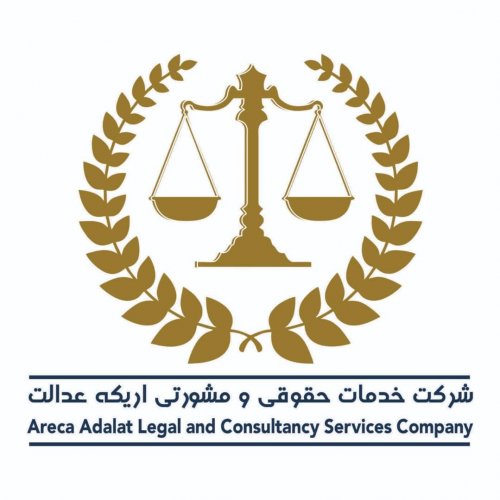Best Divorce & Separation Lawyers in Kabul
Share your needs with us, get contacted by law firms.
Free. Takes 2 min.
Free Guide to Hiring a Family Lawyer
List of the best lawyers in Kabul, Afghanistan
About Divorce & Separation Law in Kabul, Afghanistan
In Kabul, Afghanistan, the laws pertaining to divorce and separation are influenced by both Islamic principles and the legal framework established by the Afghan Family Law. Divorce refers to the dissolution of a marriage, while separation allows spouses to live apart without terminating the marriage. It is essential to understand the legal implications and procedures involved to navigate the divorce and separation process in Kabul.
Why You May Need a Lawyer
Seeking legal assistance from a lawyer specializing in divorce and separation is crucial in several situations:
- If you are unsure about your rights and obligations during divorce or separation.
- If you and your spouse cannot reach an agreement on key issues such as property division, child custody, or financial support.
- If you require guidance on alternative dispute resolution methods such as mediation or arbitration.
- If you need assistance in preparing legal documents and fulfilling legal requirements.
- If you want to ensure your rights are protected throughout the process.
Local Laws Overview
Key aspects of the local laws related to divorce and separation in Kabul, Afghanistan include:
- Kabul follows the Hanafi school of Islamic Jurisprudence, which influences family laws.
- The Afghan Family Law addresses marriage, divorce, child custody, and inheritance matters.
- Divorce can be initiated through both judicial and administrative processes.
- Sharia courts have jurisdiction over divorce and family law matters.
- Spouses must satisfy specific legal requirements and grounds for divorce or separation as stipulated by the law.
Frequently Asked Questions
Q: What are the grounds for divorce in Kabul, Afghanistan?
A: The grounds for divorce in Kabul include irretrievable breakdown of the marriage, cruelty, desertion, impotence, insanity, and adultery.
Q: How is child custody determined in Kabul, Afghanistan?
A: Child custody is determined based on the best interests of the child, taking into account factors such as the child's age, health, and the ability of each parent to provide proper care.
Q: Can a divorced woman retain custody of her children?
A: In certain situations, a divorced woman can retain custody of her children until they reach a certain age. However, the father may have visitation rights.
Q: Are there any alternatives to litigation for divorce and separation?
A: Yes, mediation and arbitration are alternative dispute resolution methods that couples can explore to reach mutually acceptable agreements.
Q: How long does the divorce process usually take in Kabul, Afghanistan?
A: The duration of the divorce process can vary depending on factors such as the complexity of the case and the court's caseload. It may take several months to finalize a divorce.
Additional Resources
If you need legal advice or further assistance regarding divorce and separation in Kabul, Afghanistan, consider reaching out to the following resources:
- Ministry of Women's Affairs - Provides information, support, and resources for women going through divorce and separation.
- Afghanistan Independent Human Rights Commission - Offers guidance on human rights issues, including family law matters.
- Kabul Bar Association - Contact the local bar association to find qualified lawyers specializing in divorce and separation.
Next Steps
If you require legal assistance in divorce and separation, follow these steps:
- Evaluate your situation and determine if legal counsel is necessary.
- Research and identify lawyers with expertise in divorce and separation in Kabul, Afghanistan.
- Consult with a lawyer to discuss your case and understand your rights and options.
- Collaborate with your lawyer to gather relevant documents and evidence.
- Follow the legal procedures and guidance provided by your lawyer throughout the divorce or separation process.
Lawzana helps you find the best lawyers and law firms in Kabul through a curated and pre-screened list of qualified legal professionals. Our platform offers rankings and detailed profiles of attorneys and law firms, allowing you to compare based on practice areas, including Divorce & Separation, experience, and client feedback.
Each profile includes a description of the firm's areas of practice, client reviews, team members and partners, year of establishment, spoken languages, office locations, contact information, social media presence, and any published articles or resources. Most firms on our platform speak English and are experienced in both local and international legal matters.
Get a quote from top-rated law firms in Kabul, Afghanistan — quickly, securely, and without unnecessary hassle.
Disclaimer:
The information provided on this page is for general informational purposes only and does not constitute legal advice. While we strive to ensure the accuracy and relevance of the content, legal information may change over time, and interpretations of the law can vary. You should always consult with a qualified legal professional for advice specific to your situation.
We disclaim all liability for actions taken or not taken based on the content of this page. If you believe any information is incorrect or outdated, please contact us, and we will review and update it where appropriate.









